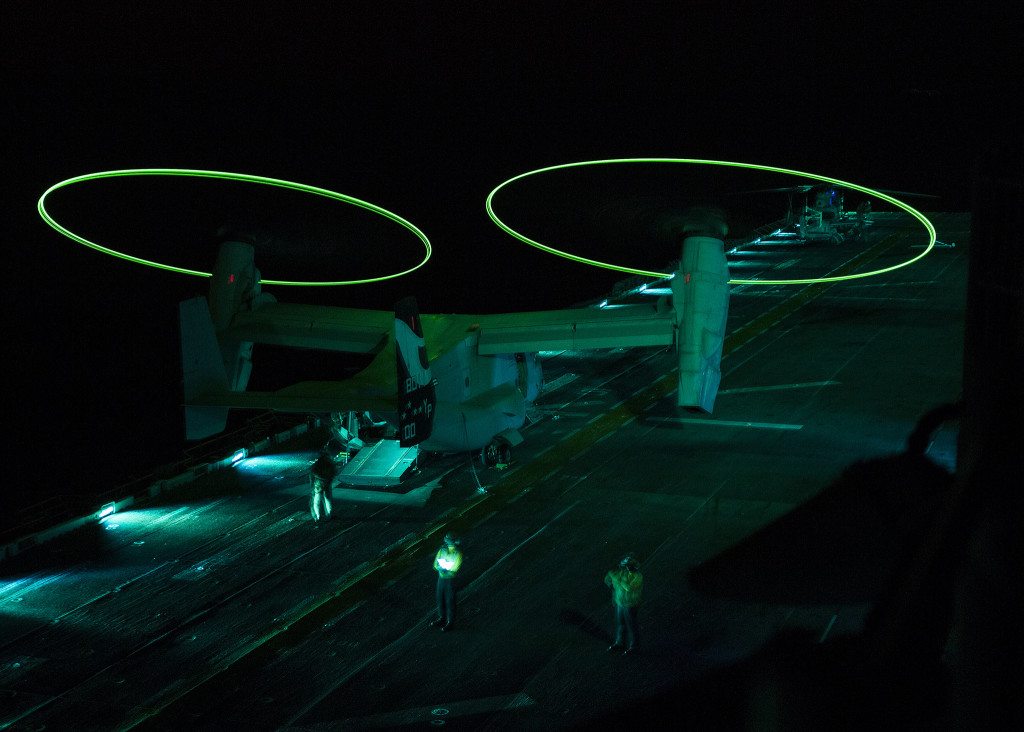Weekend Reading: December 19-21

Happy Friday, WOTR readers! Hopefully everyone has survived another crazy week and is officially counting down the days until Christmas. As always,s we’re bringing you the top reads of the week to stimulate your mind and prepare you for the weekend.
After 53 years, a historic shift in U.S.-Cuba relations. The Harvard Gazette asked two resident experts, Nicholas Burns and Jorge Domínguez, to interpret the importance of the U.S. policy shift with the island nation, and where the agreement will likely lead. They both agree that facilitating economic activity, whether it be telecommunications or agricultural products, will only be beneficial for both sides.
Cyber: North Korea’s ace up the sleeve? Michael Schmitt analyzes the North Korean cyber operation against Sony from an international law perspective. His article, which appeared in Just Security, assesses a wide range of possible response options in the face of malicious cyber operations, and concludes that without U.S. interests being at stake, there is no legal basis for a robust reaction.
The United States “needs more than zero nuclear weapons.” In an interview with the Bulletin for the Atomic Scientist, Paul Bracken talks about recent controversies concerning the dangerous state of U.S. nuclear forces, the long-term plans to renovate all three legs of the nuclear triad—at a cost of over a trillion dollars—and how to do so in the post-Cold War era.
Viewing Russia from the inside. Stratfor founder George Friedman provides us with some insights from his recent trip to Russia. He reaches two conclusions: Putin is more secure than we think, and the Russians are not planning any further campaigns of aggression.
ISIL has come to Libya. Drawing on his recent fieldwork, Frederic Wehrey offers Lawfare an incisive and comprehensive look at the challenges currently facing Libya, and presents a range of recommendations for policymakers.
The United States is fighting ISIL with one hand tied behind its back. And that’s a good thing. In his Small Wars Journal article, Joseph Becker explains why the political constraints the United States is facing in its fight against ISIL might be a blessing in disguise. He argues that the threat posed by ISIL cannot be eradicated in the short term, and the involvement of U.S. ground forces would do little to address the underlying problems that have paved the way for ISIL’s advance thus far.
Readiness on a shoestring. Andrew Tilghman explains in the Military Times that budget cuts have not compromised the military’s readiness yet, but outlines where these effects will be most noticeable in the near future. Jared Lieberher, writing for Army Magazine, takes a more gloomy approach and argues that shrinking budgets mean that the United States is fiscally and physically unable to be in any more places, thereby increasing response times to new challenges.
What really worries U.S. foreign policy experts? The Council on Foreign Relations released its Preventive Priorities Survey for 2015, which ranks conflicts by their potential effects on U.S. interests and their likelihood of erupting or escalating in 2015. Two of the greatest concerns? The intensification of the conflict in Iraq and a cyber attack on U.S. critical infrastructure.
Russian arms-producing companies’ growth remains high. The Stockholm International Peace Research Institute released the newest version of its ‘Top 100 arms-producing companies’ report. Key takeaways: sales by U.S. companies have continued to moderately decrease; sales by Russian-based companies increased by 20 percent in 2013; and emerging producers from the Global South increased sales significantly.
WOTR Round-up: As usual, here are some our top reads from this week.
- Craig Whiteside takes a look at ISIL’s top leadership and finds that almost all of them were former detainees held by the United States in Camp Bucca, Iraq. He argues that this is the result of our stubborn refusal to develop a coherent policy at the national level that balances our national security needs with the rule of law.
- B.J. Armstrong uses the example of helicopter development in the Marine Corps to demonstrate the importance of adaptive leadership and adaptive organizations for military innovation.
- Robert Evan Ellis discusses how President Obama’s decision to re-establish diplomatic relations with Cuba has created an important opportunity for the United States to renew and re-invigorate its relationship with the region on the basis of respectful partnership.

